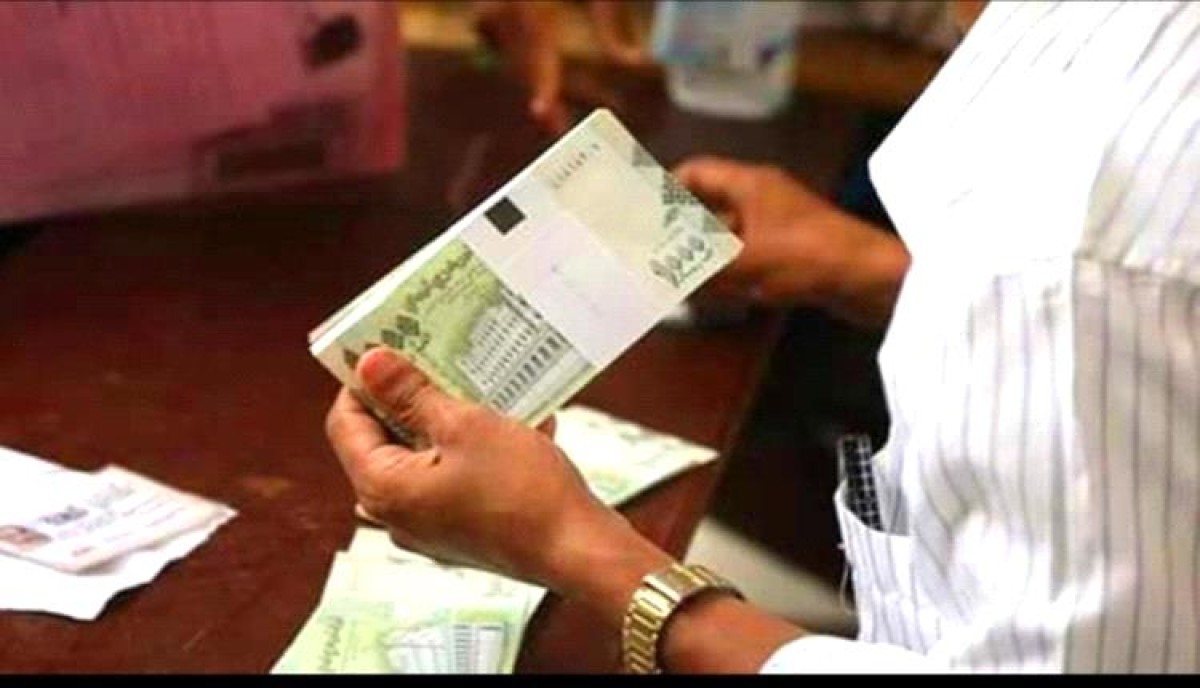Crossing the 2040 barrier...the Yemeni riyal is at its lowest levels


A continuing collapse hits the Yemeni riyal and causes it to lose the value of its exchange rate against foreign currencies, exceeding 2045 riyals to one dollar.
The decline in the exchange rate of the Yemeni riyal against foreign currencies led to an increase in the prices of food and consumer goods, which increased the purchasing power of citizens.
Recently, the value of the Yemeni riyal has declined against foreign currencies in an unprecedented manner, in light of the ongoing economic collapse that the country is witnessing due to the terrorist Houthi militia war.
The militia continues to create a new economic war against the Yemenis and the banking sector, since its coup against the Yemeni state and its targeting of Yemeni oil export ports in the east of the country.
Rising exchange rates
Banking sources told Al Ain News that the trading of the past few days recorded a significant increase in the exchange rates of the local currency against foreign currencies, most notably the US dollar and the Saudi riyal.
The sources added that the exchange rate of the US dollar against the Yemeni riyal on Sunday reached 2,045 Yemeni riyals for sale, and 2,032 riyals for purchase, per dollar, while the exchange rate of the Saudi riyal, which is the most widely traded in Yemeni markets, reached 534 Yemeni riyals for sale, and 532 riyals. To purchase.
The collapse that the price of the Yemeni riyal has reached has never been witnessed before, amid warnings from economists of the worsening living situation in the country, which is suffering from the worst humanitarian crisis in the world, according to the United Nations.
Despite the opening of special auctions to sell the currency by the Central Bank, which the bank took as an emergency measure to limit the collapse of the Yemeni currency, the auctions failed to address the collapse and provide liquidity of foreign currency.
The mechanism of these auctions has become weak and unable to produce effects in calming the exchange market and curbing currency speculators, which indicates that there are other reasons behind the continued collapse of the riyal, in addition to stopping the export of oil and the Houthi war, and artificial manipulations that stand behind the auctions losing their effect. According to economists.
The Governor of the Central Bank of Yemen had confirmed that Yemen had lost more than $6 billion of its own resources during the past 30 months alone, due to the Houthi economic war.
Al-Mu'baqi said that this loss comes "as a result of the cessation of oil and gas exports due to the Houthi militia's attacks on oil ports and tankers, in addition to targeting international navigation in the Red Sea, which doubled the cost of transportation and insurance and disrupted supply chains."
Al-Maqabaqi indicated that these factors led to increased suffering of the Yemeni people, deteriorating conditions and food insecurity, in addition to “the inability to provide basic services and an increase in poverty rates to exceed more than 80%.”
Since mid-October this year, the Presidential Council and the Yemeni government have begun rapid moves to confront the economic crisis that has ravaged the country and caused the value of the national currency to collapse and inflation to rise in an unprecedented manner.